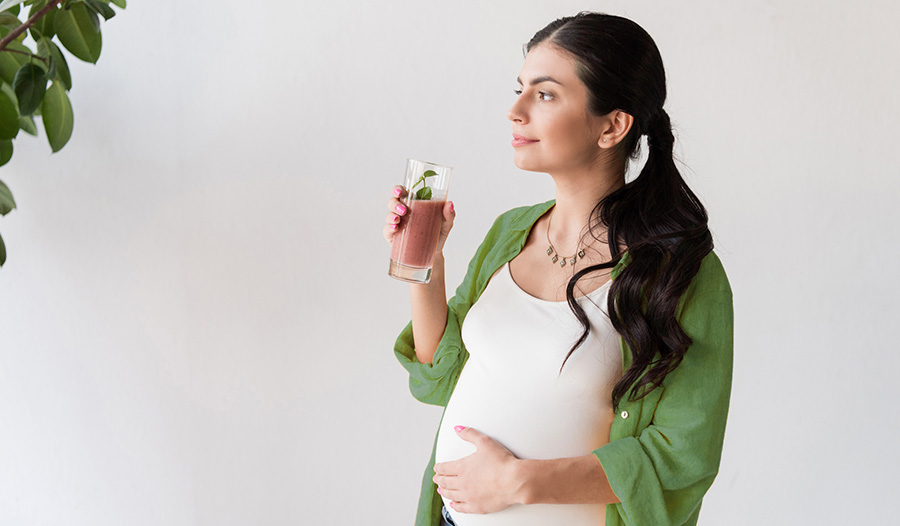The Best Supplements for Trying to Get Pregnant
DISCLAIMER:This blog does not intend to provide diagnosis...
- In this article:
- Dietary Considerations for Fertility
- Supplements for Fertility and Healthy Pregnancies
- Should My Partner Be Taking Supplements?

If you’ve decided it is time to try to conceive, you may already be wondering about what supplements are important for increasing your fertility and ensuring that your future baby is healthy. Many women trying to get pregnant have valid questions about this topic! Even women who already have children and are looking to get pregnant again ask me questions about this when they are in the office for their child’s check-ups. This article will outline the most important nutrients to consider and supplements that are very important to take when you are in the business of becoming pregnant!
Dietary Considerations for Fertility
Diet is definitely important for conception and certain foods or food groups contain many of the key nutrients that contribute to overall health and well-being. A recently completed study from Harvard Medical School showed that consuming a diet rich in fruits and vegetables decreased the incidence of ovulatory disorder in comparison to women who consumed a significant amount of carbs and animal proteins. Nutritionists recommend eating raw fruits and vegetables since they are rich in glutathione, which is important for egg quality.
Healthy, plant-based fats also have been shown to increase success with general fertility and even IVF when eaten in moderation. Examples include nuts, avocados and olive oil. Sprinkling these ingredients throughout your diet may be beneficial. Trans fats, on the other hand, could be harmful and should be avoided.
Perhaps you’re also wondering what to do when it comes to carbohydrates? Carbs often get a bad reputation in the dietary world, but you shouldn’t feel like you have to cut them out completely. In fact, complex or “slow” carbs are actually helpful in regulating your body’s metabolism. Certain hormone levels have been shown to inhibit ovulation and you can decrease the spikes of these hormones by ingesting foods high in fiber and complex carbs, such as beans and whole grains.
Supplements for Fertility and Healthy Pregnancies
Folic Acid
Prenatal vitamins are definitely a must and higher levels of folic acid and iron are needed throughout pregnancy. Before and during pregnancy, you need 400 micrograms of folic acid daily to help prevent birth defects of your developing baby’s brain and spine, sometimes referred to as neural tube defects. It is recommended that pregnant women receive 600 micrograms of folic acid from all sources, including the supplement, on a daily basis.
Omega-3 Fatty Acids
Omega-3 fatty acids are a type of fat found naturally in many different kinds of fish and may be important in your developing baby’s brain health. Some types of fish contain high levels of mercury, however, which has been linked to birth defects. In order to ensure that you’re receiving an adequate amount of omega-3 fatty acids while avoiding dangerous levels of mercury, consider taking an omega-3 supplement. Some prenatal vitamins contain DHA and EPA, two important omega-3 fatty acids, but if yours doesn’t you can look for a separate supplement. There are also a number of omega-3 sources that are animal-free.
Vitamin D
Vitamin D is an important nutrient because it works with calcium in order to build your developing baby’s bones and teeth! Many prenatal vitamins contain roughly 400 international units of vitamin D, but at least 600 international units daily is the recommendation for all adults. For women trying to conceive, some studies have shown that higher vitamin D levels in the blood are associated with higher pregnancy rates. Wondering how much vitamin D is too much? Up to 4,000 international units is the safe upper level of daily vitamin D intake.
Probiotics
Although data is limited, some research shows that women who supplemented with probiotics during the first trimester of pregnancy were less likely to be diagnosed with gestational diabetes. Probiotics are a great way to improve gut health and overall digestion and cause no harm to a developing fetus. If you are already using a probiotic, it is safe to continue to use when trying to conceive. Probiotics have been deemed by the National Institute of Health as posing no risk for expecting or lactating mothers.
Should My Partner Be Taking Supplements?
Men’s health is also a key factor in conception and a high-quality multivitamin is recommended to increase the rates of pregnancy. Increasing antioxidant intake improves sperm quality, which leads to a higher chance of a successful pregnancy. Fruits and vegetables are rich in antioxidants, but men should also consider a daily supplement to ensure they are receiving all of the nutrients they need.
If you are diagnosed with any medical condition or if you have had a child with a birth defect, certain supplementation may be particularly important. Be sure to meet with your physician to discuss your nutrition and your supplementation plan when you are planning to conceive so that you are fully equipped with the necessary tools and information needed for a successful pregnancy.
References:
- https://www.acog.org/Patients/FAQs/Nutrition-During-Pregnancy
- https://www.naturalmedicinejournal.com/journal/2010-04/probiotics-and-pregnant-women
- https://americanpregnancy.org/pregnancy-health/probiotics-during-pregnancy/
- https://americanpregnancy.org/getting-pregnant/mens-preconception-health/

 By Dr. Cherilyn Cecchini, M.D.
By Dr. Cherilyn Cecchini, M.D.


